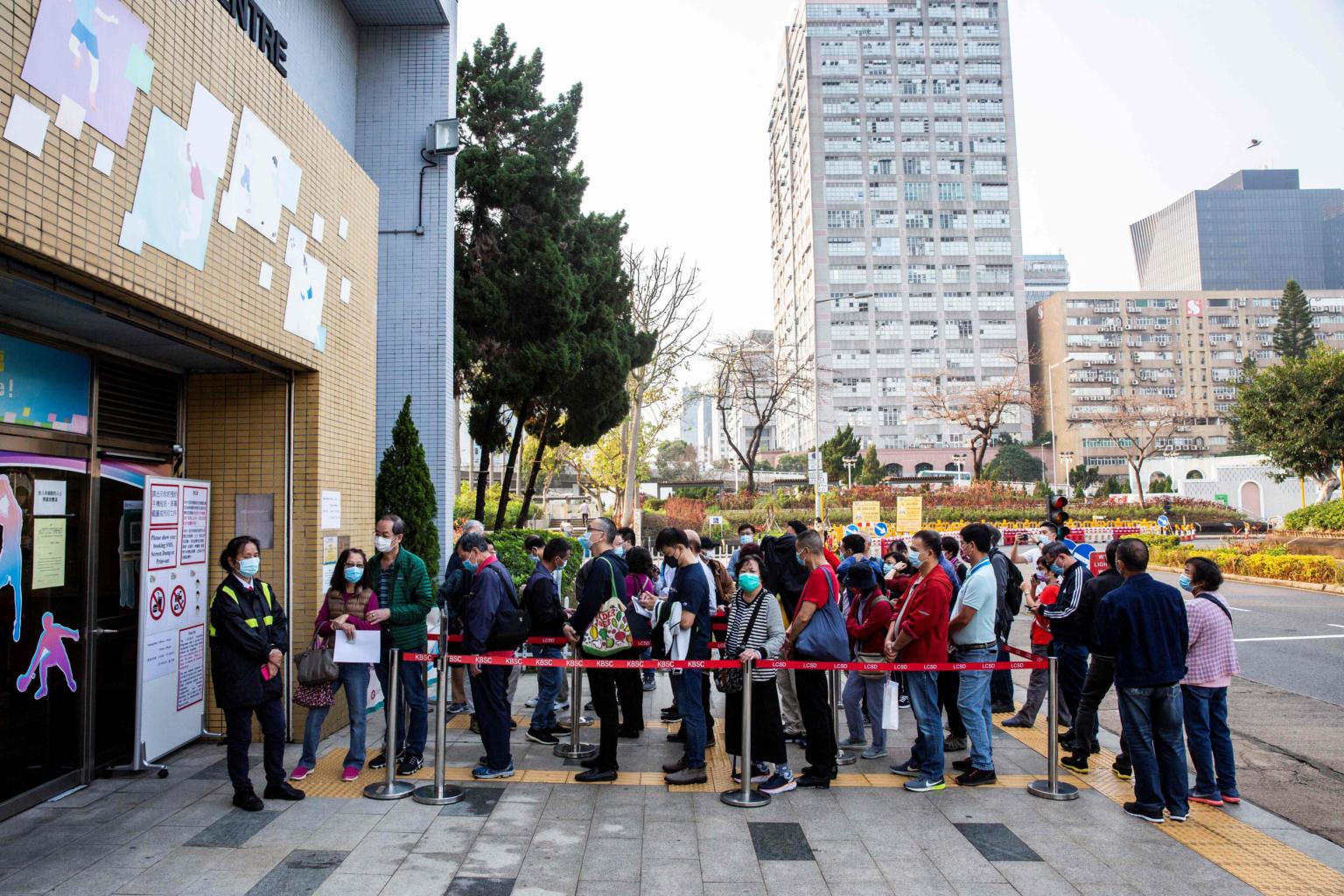Hong Kong's Covid-19 vaccine no-show rate rises after side effect reports
Sign up now: Get ST's newsletters delivered to your inbox

The skipping of vaccine appointments comes after the city reported three deaths and three critical illnesses among the more than 130,000 people inoculated to date.
PHOTO: AFP
Follow topic:
HONG KONG (BLOOMBERG) - Fewer Hong Kong residents are showing up to get vaccines from Chinese maker Sinovac Biotech amid reports of side effects, even as demand was strong for shots developed by BioNTech-Pfizer on the day of their debut.
The number of people who received their scheduled Sinovac immunisations at community vaccination centres fell to 72 per cent on Wednesday (March 10), down from a high of more than 90 per cent last week.
More than one-third of those who signed up for the vaccine, 36 per cent, were no-shows on Tuesday.
The BioNTech vaccine, brought into the city by Shanghai Fosun Pharmaceutical Co, was administered to 91 per cent of those signed up to get it on Wednesday, the first day it was available.
The skipping of Sinovac vaccine appointments comes after the city reported three deaths and three critical illnesses among the more than 130,000 people inoculated to date.
While none have been linked to the Sinovac vaccines, hesitancy around getting the shots has risen among residents.
The authorities preliminarily ruled out a tie between the vaccines and the first two deaths and two critical cases, while they are still analysing the more recent reports.
"It's understandable some residents are worried about the latest serious adverse events and even deaths following vaccination," Secretary for the Civil Service Patrick Nip said on Tuesday.
All of the serious side effects will be reviewed closely by an expert committee, as is common procedure, he said.
India and mainland China also had sluggish starts to their vaccination efforts, due at least in part to distrust and concern over the recently released Covid-19 vaccines.
Hong Kong began its public vaccination campaign on Feb 26, prioritising people aged 60 and older, healthcare staff and other essential workers.
Starting Tuesday, it expanded its priority groups to cover 3.7 million people, about half of its population, adding those in high-risk contact positions like teachers, public transportation drivers and restaurant workers.
Other countries also have reported fatalities among people who have received inoculations, though the numbers have been small and nearly all cases involved underlying conditions.
None of the deaths or serious complications have been tied to the shots.
Meanwhile, Dr Samuel Kwok, the head of the community vaccination centre in Jordan district, said it was important that medical staff working in community vaccination centres didn't become distracted by people wanting to discuss their individual health concerns.
"This whole practice of having a community vaccination centre, people can have easy and smooth, and quick vaccinations in the centres," public broadcaster RTHK quoted him as saying.
"But if we start being a medical consultation centre, then it's a whole different thing. And this doesn't help because the doctors in the centres are not the doctors taking care of those people originally.
"So it should be better - if they have issues, they have problems, they have questions - they should go to their own family doctors."

